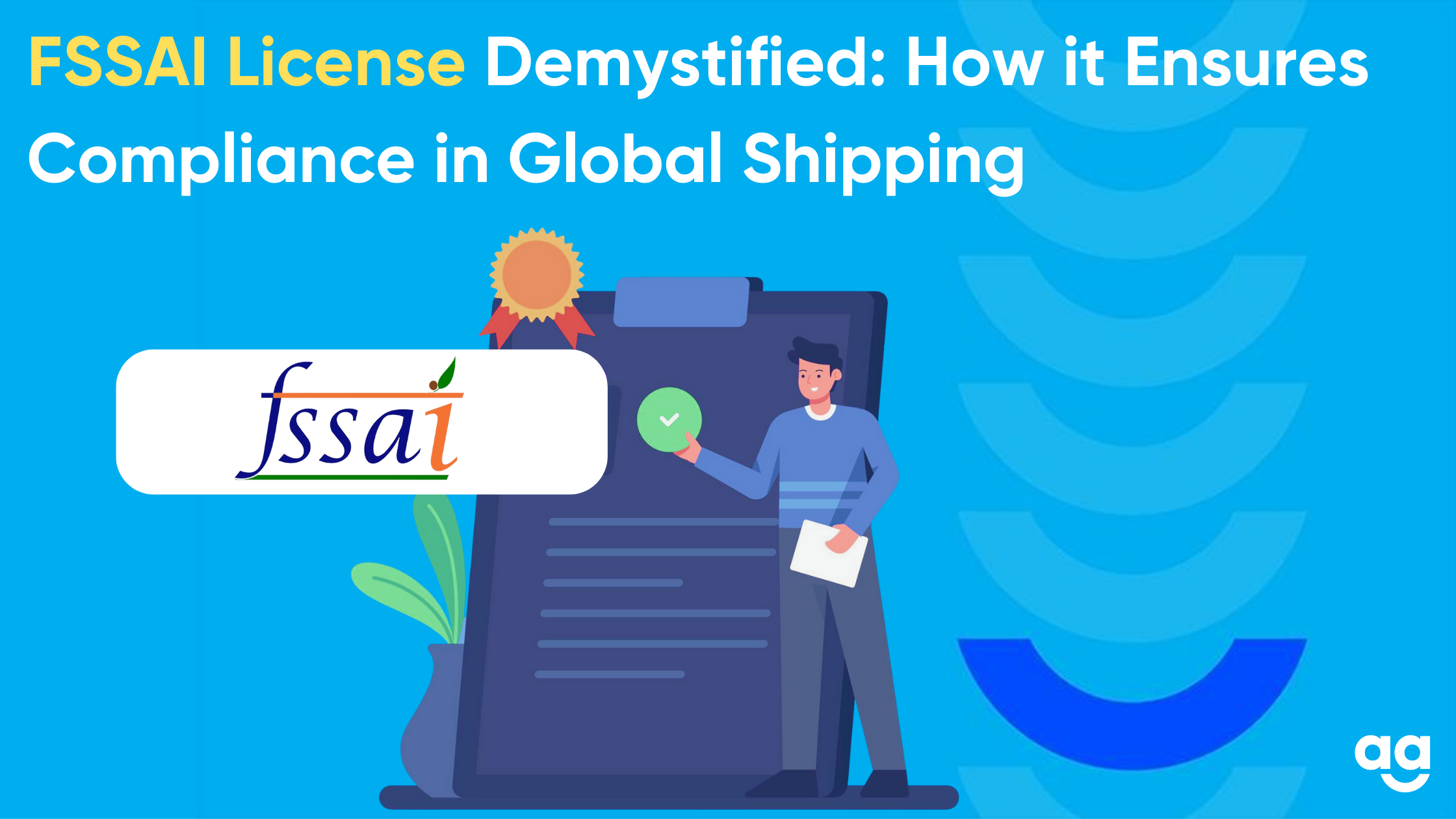Introduction
When it comes to shipping food products globally, compliance with food safety regulations is of utmost importance. In India, the Food Safety and Standards Authority of India (FSSAI) plays a vital role in ensuring the safety and quality of food products.
Obtaining an FSSAI license is a crucial step for businesses involved in the global shipping of food products. This article aims to demystify the FSSAI license and shed light on how it ensures compliance in global shipping, safeguarding the health and well-being of consumers.
Understanding the FSSAI License
The Food Safety and Standards Authority of India (FSSAI) is a statutory body responsible for regulating and overseeing the safety and quality of food products in India.
The FSSAI license is a legal requirement for businesses involved in food processing, manufacturing, packaging, labeling, and distribution. It is a certification that ensures compliance with the food safety standards established by the FSSAI.
Types of FSSAI License
The FSSAI license is categorized into three types based on the scale and nature of the food business:
FSSAI Registration:
This license is applicable to small-scale food businesses with an annual turnover below a specified limit, which is currently INR 12 lakh. It is suitable for businesses operating at a local level, such as small food manufacturers, retailers, and food stalls.
State FSSAI License:
This license is required for medium-sized food businesses with an annual turnover between the specified limit of INR 12 lakh and INR 20 crore. It is suitable for businesses operating within a particular state.
Central FSSAI License:
This license is mandatory for large-scale food businesses with an annual turnover exceeding INR 20 crore. It is applicable to businesses engaged in activities such as food import-export, food processing, and manufacturing across multiple states in India.
Importance of FSSAI License in Global Shipping
Obtaining an FSSAI license is essential for businesses involved in global shipping of food products. Here are the key reasons why the FSSAI license ensures compliance and plays a crucial role in global shipping:
Ensuring Food Safety and Quality
The primary objective of the FSSAI license is to ensure food safety and quality. It establishes standards and regulations for the handling, processing, and transportation of food products. The license ensures that businesses follow good manufacturing practices, maintain proper hygiene, and comply with labeling and packaging requirements.
By adhering to these regulations, the FSSAI license helps prevent the distribution of unsafe or substandard food products, protecting the health and well-being of consumers worldwide.
Meeting International Standards
In the global market, adherence to international food safety standards is vital for successful trade. The FSSAI license ensures that Indian food businesses meet international standards and regulations, enhancing their credibility and competitiveness in the global market.
With an FSSAI license, businesses can demonstrate their commitment to quality and compliance, facilitating smoother and more reliable trade relationships with international partners.
Facilitating Customs Clearance
Customs authorities around the world require appropriate documentation to clear imported food products. The FSSAI license serves as a crucial document that demonstrates compliance with Indian food safety regulations. It helps expedite the customs clearance process, minimizing delays and ensuring the timely delivery of food products to international destinations.
Building Consumer Trust
Food safety is a top concern for consumers, and they are increasingly conscious of the quality and safety of the products they consume.
With an FSSAI license, businesses can build consumer trust by assuring them that their food products meet the required safety and quality standards. This trust translates into repeat purchases, positive brand reputation, and long-term business growth in the global market.
How to Obtain an FSSAI License
Obtaining an FSSAI license involves a systematic process. Here are the key steps to obtain an FSSAI license:
Determine the Type of License:
Identify the appropriate category of the FSSAI license based on the scale and nature of your food business.
Application Preparation:
Gather the necessary documents, including identity proofs, address proofs, and supporting documents related to the food business.
Online Application Submission:
Register on the FSSAI portal and submit the application along with the required documents online.
Inspection and Verification:
Upon submission, the FSSAI authorities may conduct inspections and verify the information provided in the application.
License Issuance:
If the application is found to be compliant, the FSSAI license is issued to the applicant, valid for a specified duration.
Renewal and Compliance:
Ensure timely renewal of the FSSAI license and maintain compliance with the food safety regulations throughout the validity period.
Conclusion
The FSSAI license plays a critical role in ensuring compliance in global shipping of food products. It sets the standards for food safety and quality, ensures adherence to international regulations, facilitates customs clearance, and builds consumer trust. Obtaining an FSSAI license is not only a legal requirement but also a strategic move for businesses engaged in the global shipping of food products.
By prioritizing food safety and compliance, businesses can navigate the complexities of global trade, gain a competitive edge, and contribute to the overall well-being of consumers worldwide.







 Shipping
Shipping







